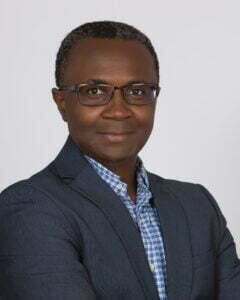Member Insight – Onyebuchi A. Arah
 What sparked your decision to become an epidemiologist?
What sparked your decision to become an epidemiologist?
I read Modern Epidemiology (second edition, ME2) while doing a master’s degree in health services and was immediately captivated by the rigor and relevance of the field. As soon as I got my copy of ME2, I unintentionally consumed the entire book within a week. It was clear to me that epidemiology was central to public health and medicine. As a physician trained in multiple public health specialties, I was also naturally be drawn to epidemiology. I am forever thankful to Bert Hofman (Erasmus, Harvard) for recommending ME2 and Sander Greenland (UCLA) for his encouraging responses to my emails when I was a student. Reading Jamie Robins and learning from Ken Rothman sealed the deal. A couple of years on, epidemiology had introduced me to Judea Pearl’s Causality: Models, Reasoning and Inference which I then proceeded to devour over two weeks during a trip to Texas. Again, unintentionally. I’ve never been the same after these two books.
What do you see as the biggest obstacle facing epidemiologists in the next five years?
The biggest obstacle facing epidemiologists is reimaging the path forward for epidemiology and its role in the health sciences and in public broadly post-COVID-19. This includes address the following: who we serve; what we study; who studies them; who we train; who we teach; how we conduct studies; how we communicate our science; how we help change our communities; how we fight misinformation, disinformation and science distrust; and how we engage the public, other disciplines, policymakers and politicians. We just cannot continue with the way things were before the pandemic. We cannot continue as if racism is not a threat that epidemiologists should study and address rigorously and continuously. We cannot continue as if epidemiologists can avoid partnering with and supporting our local and regional communities to consequential work. We cannot continue as if science communication is a side gig. We must adapt and address the fault lines in our work and approach that were exposed by the pandemic. The spotlight is now on us.
Do you have any pets?
Not since our cat, Lotje, died. Unfortunately, I have cat allergies that I must address before getting another cat.
Why did you join SER? What keeps you coming back?
I joined SER because I wanted to be around folks who valued rigorous methods for answering important population health questions. I also liked that epidemiology helped pioneer modern causal inference and reasoning. I keep coming back for those reasons too and for the rich mix of applied topics, the wonderful new epidemiologists that join every year, and for the opportunity to contribute to the future of both SER and Epidemiology.
What advice do you give students who want to become epidemiologists?
I tell them to go for it. Epidemiologists acquire skills and knowledge are transferable to many other adjacent fields and can be applied to even disciplines beyond the health sciences. Epidemiologists get to work on critical issues in health research in academia, government, and industry. Epidemiologists are increasingly employed in Silicon Valley as epidemiologists and data scientists, and some even start their own companies, for example.
Outside of epidemiology what do you enjoy doing?
I enjoy listening to different kinds of music, and reading non-fiction books (particularly on history, astrophysics, philosophy, and social sciences), and taking long walks. I can walk for hours.
What is something that not many people know about you?
I am terrible at learning new languages but, to my surprise, I speak three — Igbo, Dutch, and English — fluently. I can also read or write a couple of others to varying degrees (French, some German, but not Spanish yet). One more thing: I dislike driving, but I enjoy high performance cars. I go to auto shows whenever I get a chance.
